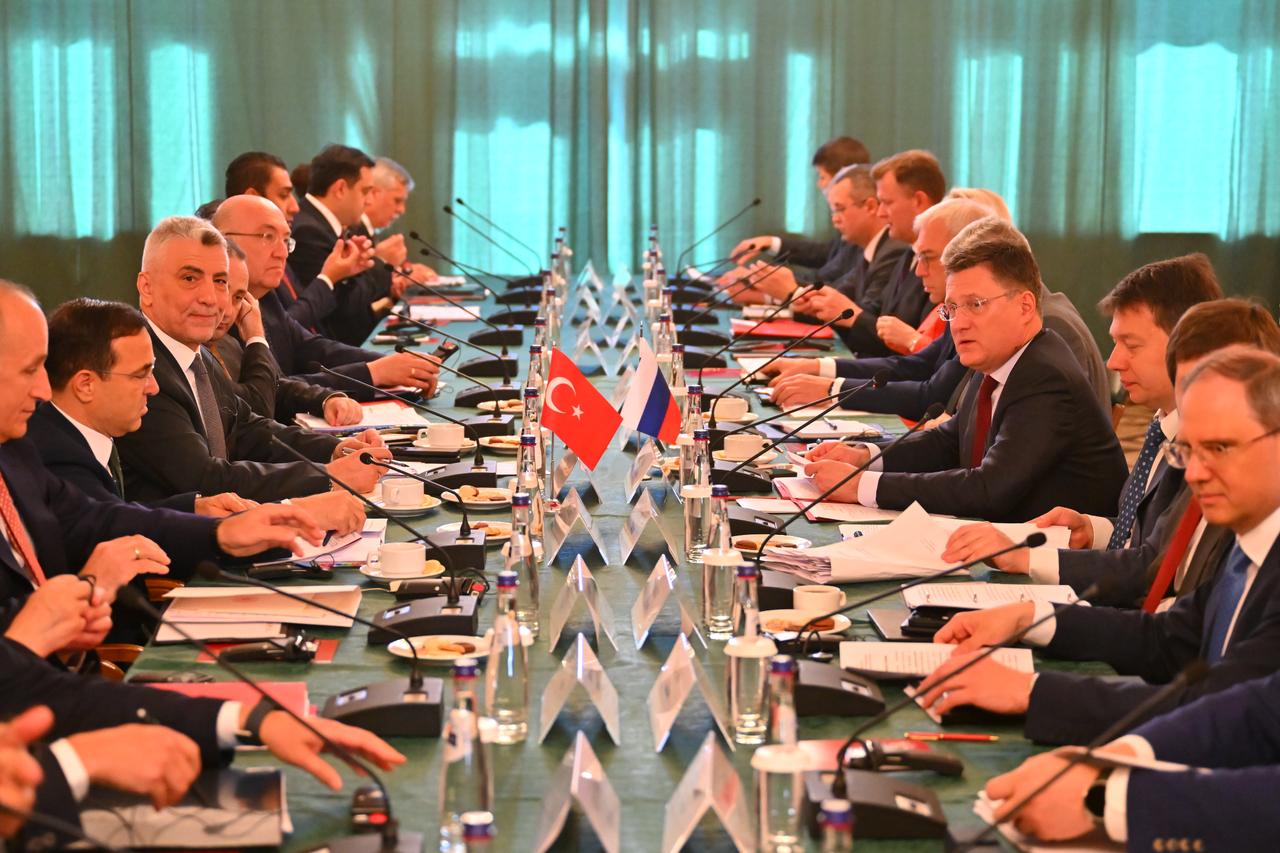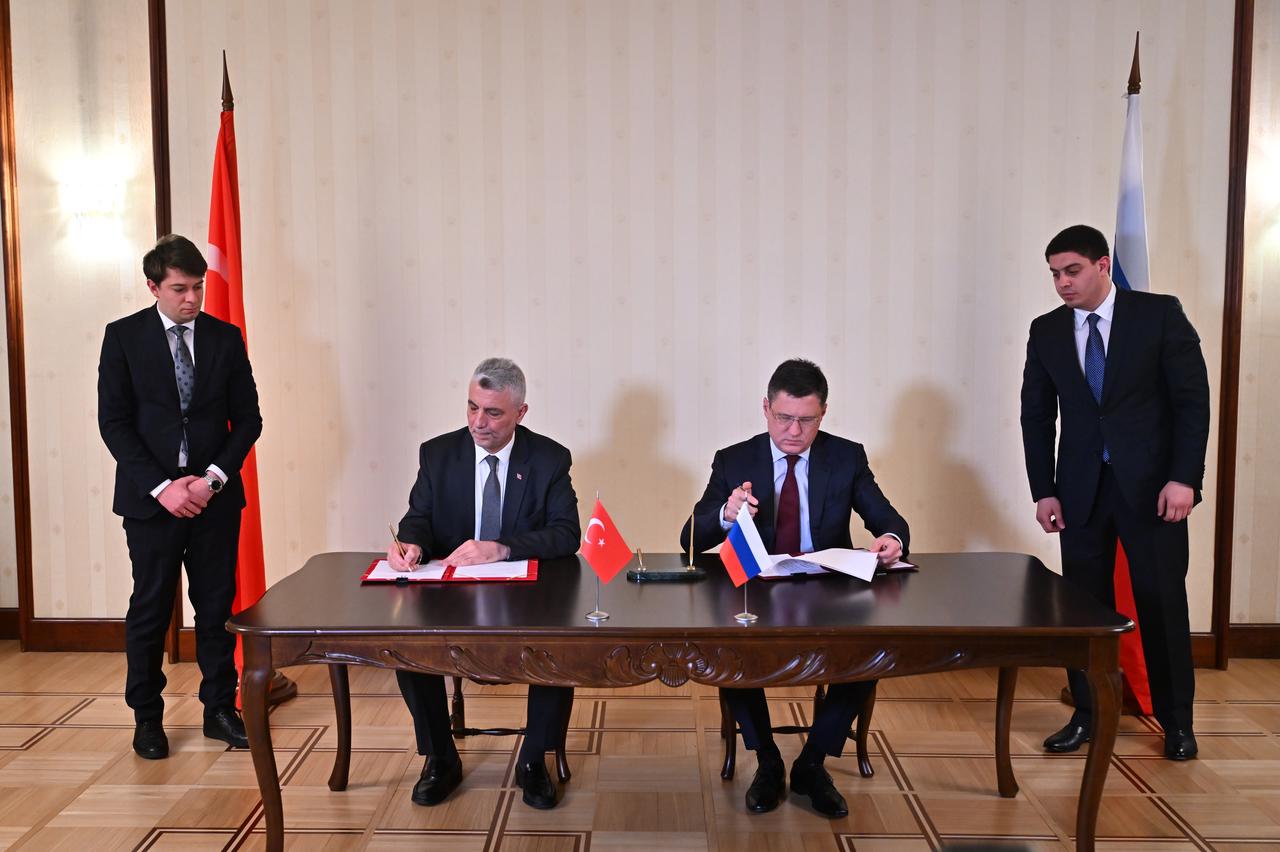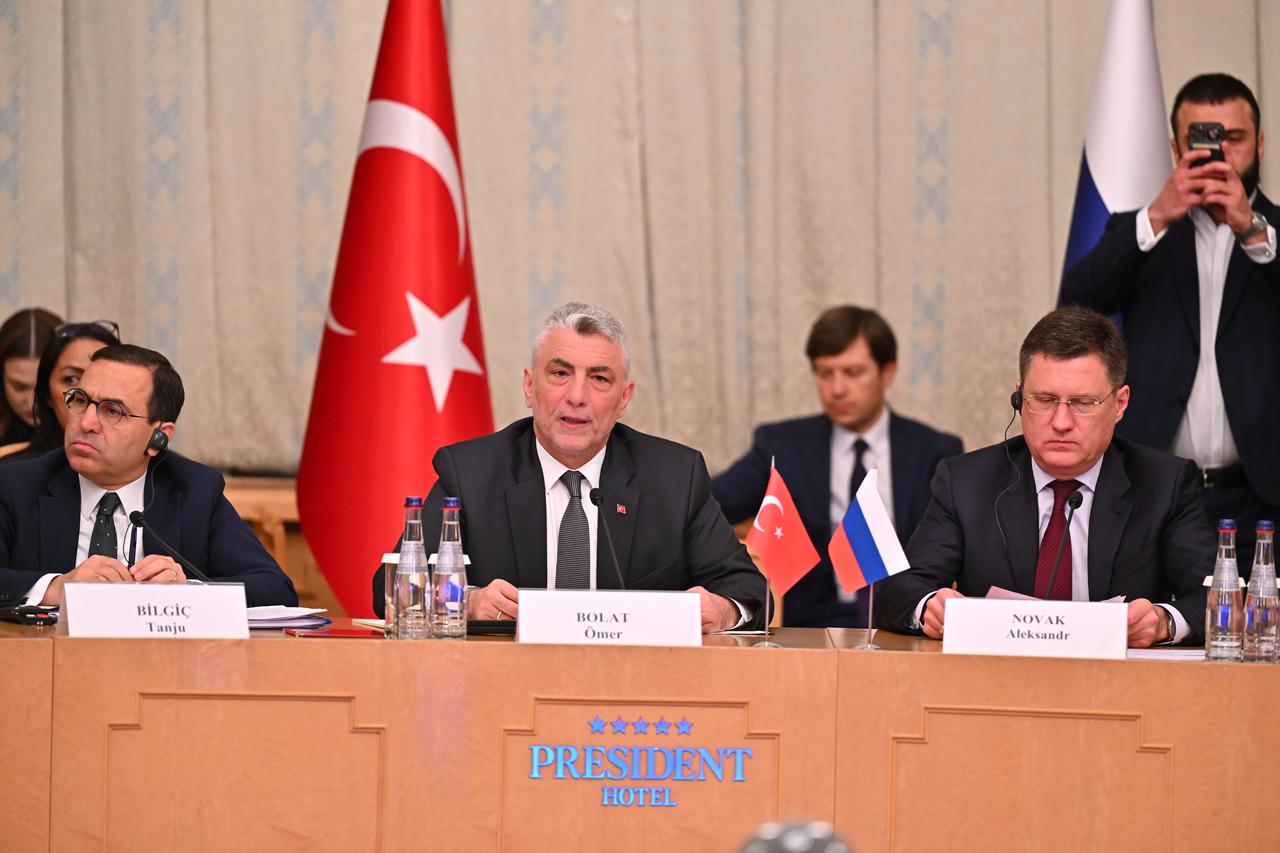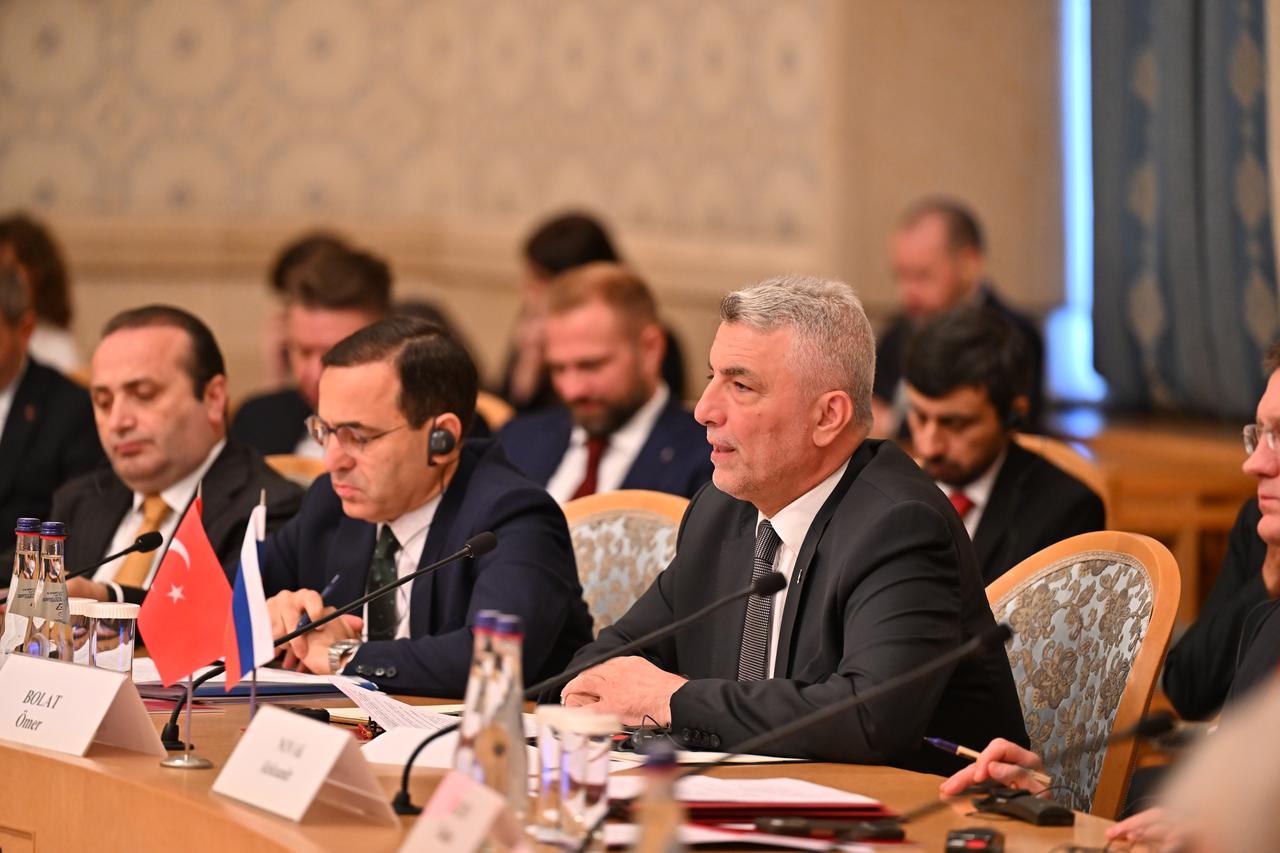
Türkiye and Russia have signed a new intergovernmental protocol to expand their long-standing economic partnership, with the goal of raising bilateral trade volume to $100 billion.
The agreement was concluded during the 19th session of the Joint Economic Commission (KEK), held in Moscow under the co-chairmanship of Türkiye’s Minister of Trade Omer Bolat and Russia’s Deputy Prime Minister Aleksandr Novak.

Speaking after the signing ceremony, Minister Bolat said the protocol “will serve as a roadmap for Türkiye-Russia trade and economic relations.” The new agreement is expected to bolster cooperation across multiple sectors and support the shared objective of increasing bilateral trade volume.
Pointing to the long-standing ties between the two nations, Bolat stated, “Türkiye and Russia are both significant actors in the region and neighbors. The trade and economic cooperation we have developed over the years serves as a foundation for peace and stability in the region.”

The minister drew attention to the robustness of both economies despite global disruptions. “The Turkish and Russian economies, which have already proven their resilience, offer the necessary potential for building stronger cooperation with their complementary qualities,” he said.
Currently, Russia is Türkiye’s top trading partner, with total trade reaching $52.6 billion in 2024—even as that figure slipped by about 7% from the previous year. In the first five months of this year, Türkiye’s exports to Russia have already exceeded $2.7 billion, indicating continued momentum early in 2025.

“The Turkish economy has grown uninterruptedly for 19 consecutive quarters. In 2023, we achieved 3.2% growth and reached a GDP of $1.3 trillion,” Bolat highlighted. He also emphasized Türkiye’s export gains, noting, “In 2002, our export volume stood at $36 billion. By 2024, we have increased this figure sevenfold to $262 billion.”
Commenting on Russia’s economic momentum, Bolat stated, “According to IMF data, Russia recorded 4.1% growth in both 2023 and 2024—outperforming global forecasts.”
Bolat concluded by affirming that the evolving Turkish-Russian cooperation, particularly through platforms like KEK, provides a solid foundation for building deeper economic integration across various sectors.